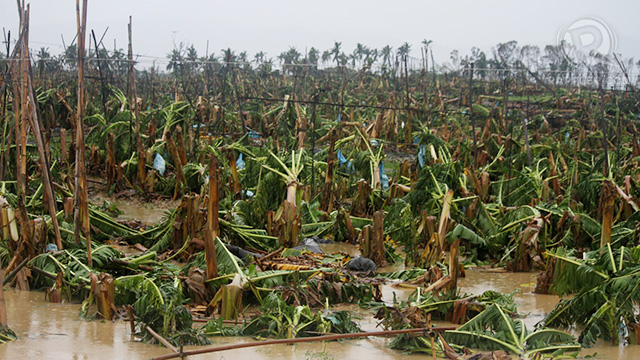SUMMARY
This is AI generated summarization, which may have errors. For context, always refer to the full article.

MANILA, Philippines – The Philippines, the world’s third largest exporter of bananas, lost a quarter of its crop in Typhoon Pablo (Bopha), an industry group said Thursday, December 6, adding that the typhoon has also likely spread a destructive pest.
The Philippine Banana Growers and Exporters Association said the deadly storm, which has so far killed 475 people, would also cost the industry $318 million.
Executive director Stephen Antig said Bopha destroyed 10,000 hectares (24,700 acres) of the country’s 42,000 hectares of banana farms.
The hurricane-force winds and flash floods flattened wide swathes of the hillsides of Davao Oriental and Compostela Valley provinces, the centre of the industry, he added.
And apart from the visible damage, Antig said there were fears that the floods might have spread Panama Disease, which prevents the plant from bearing any fruit before eventually killing it.
The bug then renders the affected areas unsuitable for replanting.
About 150,000 people depend on the banana industry in Compostela Valley alone.
The Philippines likely lost P8 billion ($196 million) in ruined harvests and damaged facilities in the storm, Antig said, while rehabilitating farms would take several months and likely cost another P5 billion.
It would then take 9 months after the replanting to reap the next harvest.
The state census office said the Philippines shipped $471 million worth of the fruit last year — accounting for one percent of total exports.
Bopha is the latest blow to the Philippines’ banana industry, which was embroiled in a row this year with major market China over alleged pests on shipments that left tonnes of the fruit to rot at Chinese ports.
The two governments later held talks to resolve the issue.
Antig said the industry was also hit by the international foreign exchange embargo on Iran, and an attack of Panama Disease on some plantations. – Agence France-Presse
Add a comment
How does this make you feel?
There are no comments yet. Add your comment to start the conversation.